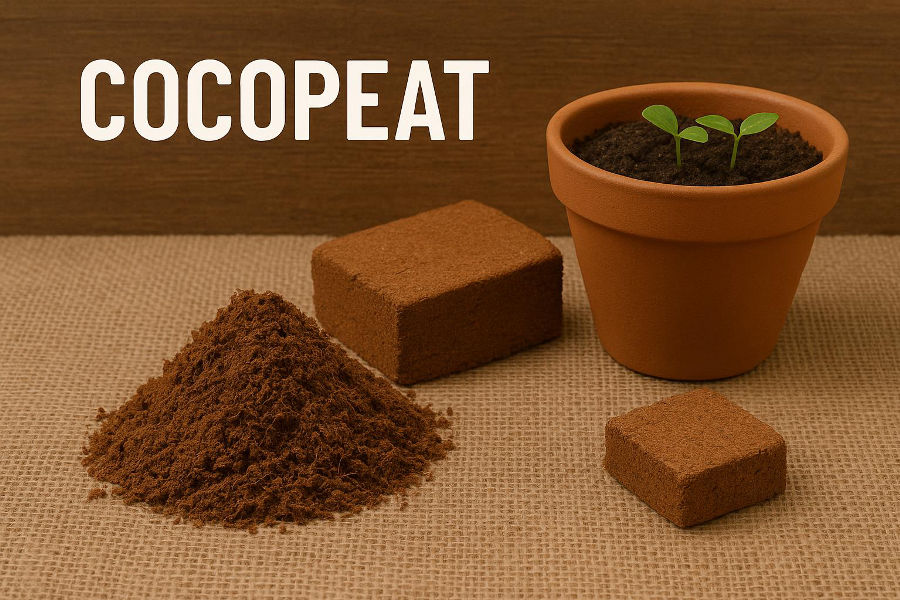Cocopeat : Uses & Advantages
Cocopeat, also known as coir pith, is a soft, spongy material made from coconut husks. It is fast becoming a favorite among farmers, gardeners, and nursery owners for its many benefits. Unlike regular soil, cocopeat is lightweight, eco-friendly, and works wonders for plant growth.
Uses of Cocopeat
-
Soil Conditioner
Cocopeat improves soil structure. When mixed with regular soil, it increases air circulation and water retention, making the soil more suitable for roots to grow. -
Seed Germination
Due to its soft texture and moisture-holding capacity, cocopeat is widely used in nurseries for starting seeds. It gives young roots a perfect start. -
Potting Mix
It is commonly used as a part of potting mix for indoor and outdoor plants. It helps keep the soil loose and drains excess water easily. -
Hydroponics
Cocopeat is also used as a growing medium in hydroponic systems, where plants are grown without soil.
Advantages of Cocopeat
-
Excellent Water Retention
It can hold water up to 8–10 times its weight. This means plants stay hydrated longer, reducing the need for frequent watering. -
Environment-Friendly
It is a byproduct of the coconut industry and biodegradable, making it a sustainable alternative to peat moss. -
Prevents Soil Hardening
It keeps the soil from becoming compact and hard, ensuring roots can breathe and absorb nutrients well. -
Disease-Free Medium
Cocopeat is naturally resistant to pests and fungal infections, giving your plants a healthier environment to grow.
